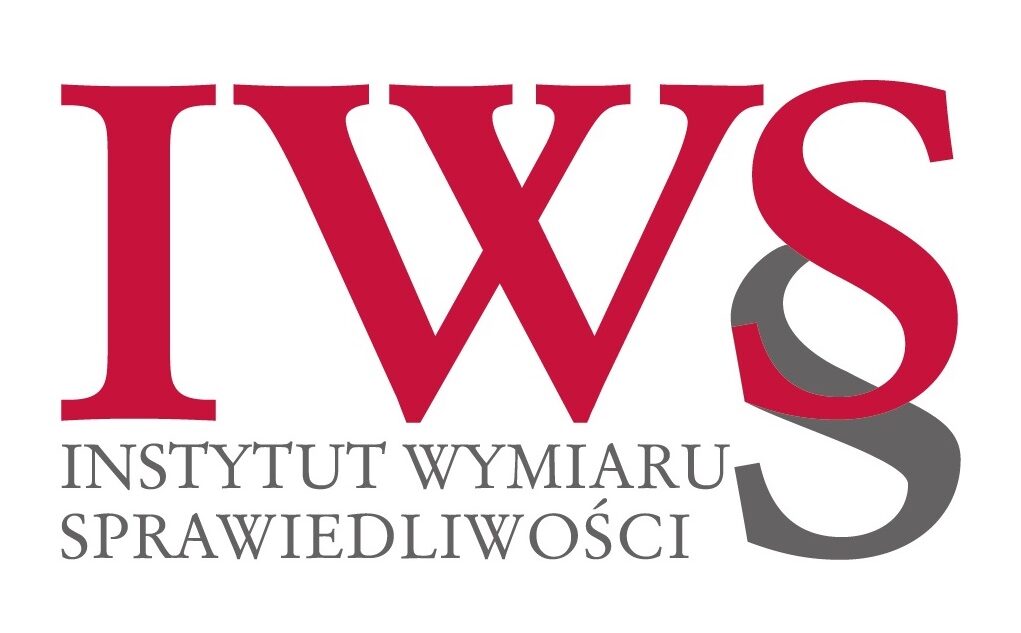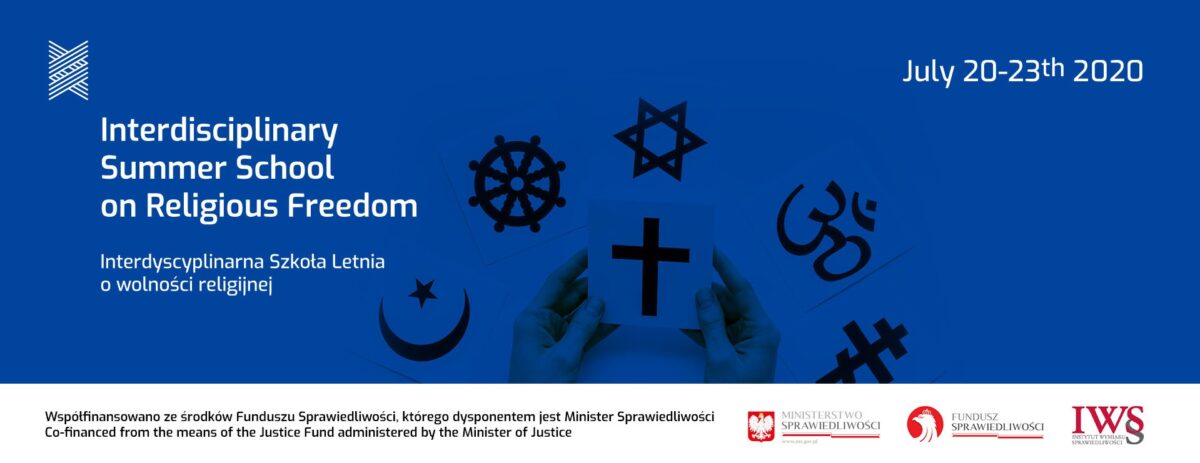Interdisciplinary Summer School on Religious Freedom
2020-08-03

On July 20-23, 2020, the Interdisciplinary Summer School on Religious Freedom took place. The Summer School was organized by the Institute of Justice as part of a research project „For the freedom to profess religion in the contemporary world. Counteracting the causes of discrimination and helping the persecuted based on the example of Christians”, whose implementation is provided by the IoJ Strategic Analysis Center and which is co-financed by the Justice Fund whose administrator is the Minister of Justice.
The aim of the Summer School was to increase the knowledge about religious freedom, manifestations of discrimination and prejudice on the basis of religion or belief, persecution due to religious beliefs and ways of counteracting crime in this area.
The event was international and was aimed primarily at young scientists, PhD students and students. Polish and foreign experts specializing in religious freedom were invited to participate in the Summer School: prof. Fernando Simón Yarza (University of Navarra), dr hab. Krzysztof Koźmiński (University of Warsaw), Dr. Georgia Duplessis (University of Leuven) and Dr. Jonathan Price (University of Oxford). Participants listened to lectures by invited guests and also took part in lively discussions after each lecture session. At the same time, it was an opportunity for them to present, in shorter, 15-minute lectures, the results of their own research on the broadly understood issue of religious freedom.
The Interdisciplinary School on Religious Freedom started on July 20, 2020. The videoconference was officially opened by the Director of the Institute of Justice, Dr. hab. Marcin Wielec. After him, Mr. Bartłomiej Oręziak – director of the Center for Strategic Analyzes and Fr. dr hab. Piotr Roszak, prof. UMK – coordinator of the project „For the freedom to profess religion in the contemporary world. Counteracting the causes of discrimination and helping the persecuted based on the example of Christians” took the floor. The morning session began with lectures by Dr. Jonathan Price (University of Oxford), which outlined the historical, philosophical, and theological understanding of religious freedom. Participants in large numbers and eagerly took advantage of the opportunity to discuss with the invited guest. The afternoon session included lectures by participants representing academic centers from Białystok, Cracow and Mainz. The afternoon session ended with a discussion on the papers and the topics covered in them.
The second day of the Summer School, especially the morning session, was marked by the relationship between religious freedom and economic freedom. Dr hab. Krzysztof Koźmiński (University of Warsaw) outlined the constitutional and legal panorama of the issue, as well as economic and economic-legal. The afternoon session was attended by participants from Warsaw, Wrocław, Toruń and Guadalajara (Mexico), and the speakers’ papers became the starting point for discussions.
The third day of the Summer School began with lectures by Dr. Georgia Duplessis (Leuven University) on religious freedom on the basis of European and international legal acts and religious freedom in education, as well as the issues of religious freedom and freedom of speech. The lectures sparked a lively discussion. The afternoon session was attended by academics representing the universities of Barcelona, Guadalajara (Mexico) and Rzeszów. The session ended with a discussion, during which the speakers developed some of the topics discussed in the papers.
The last, fourth day of the Summer School began with lectures by Professor Fernando Simón Yarza from the University of Navarra on the issues of: state neutrality, religious freedom, freedom of speech. Professor Yarza also referred to the contemporary challenges of opposition for religious reasons, as well as the issue of religious freedom in the context of the pandemic. After the lectures Professor Yarza answered questions from the audience. Representatives of academic centers in Bydgoszcz, Nowy Targ, Cracow and Warsaw participated in the afternoon session. The last session of the Summer School was a lively discussion over the papers. Then, Fr. Professor dr hab. Piotr Roszak closed the meeting of the Summer School.
The Interdisciplinary Summer School on Religious Freedom was an opportunity for a broad exchange of ideas and views. During its duration, its participants – young adepts of legal sciences under the supervision of specialists in the field of, among others, philosophy, human rights, economic law, and constitutional law broadened their knowledge in the field of understanding religious freedom, opportunities and threats related to this subject, and contemporary challenges related to the issue of religious freedom.
Participants’ speeches, interviews and discussions will be available on the official website of the Project, which we cordially invite you to visit: https://iws.gov.pl/projekt-o-wolnosc-wyznawania-religii-we-wspolczesnym-swiecie/opis-projektu/









